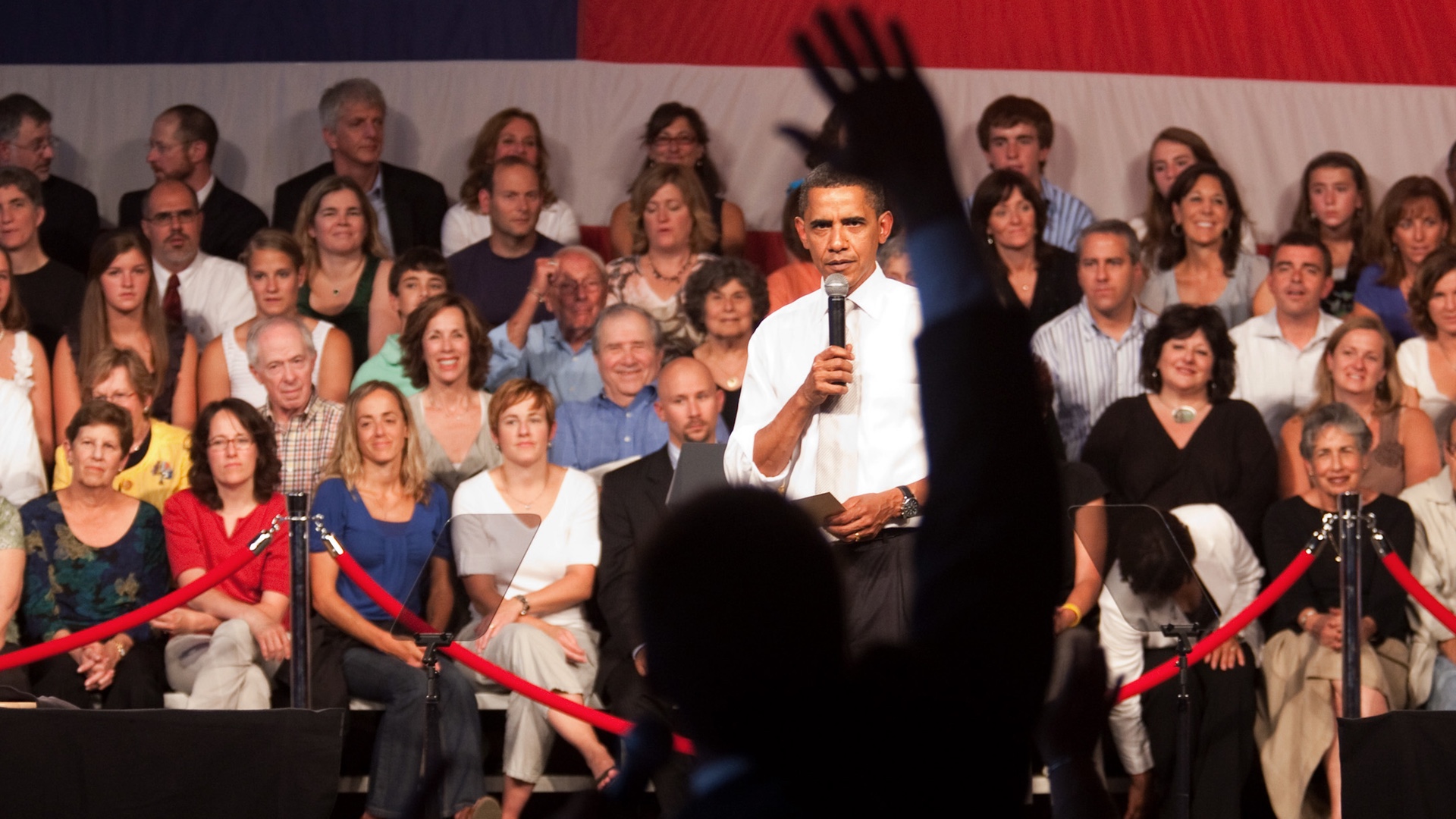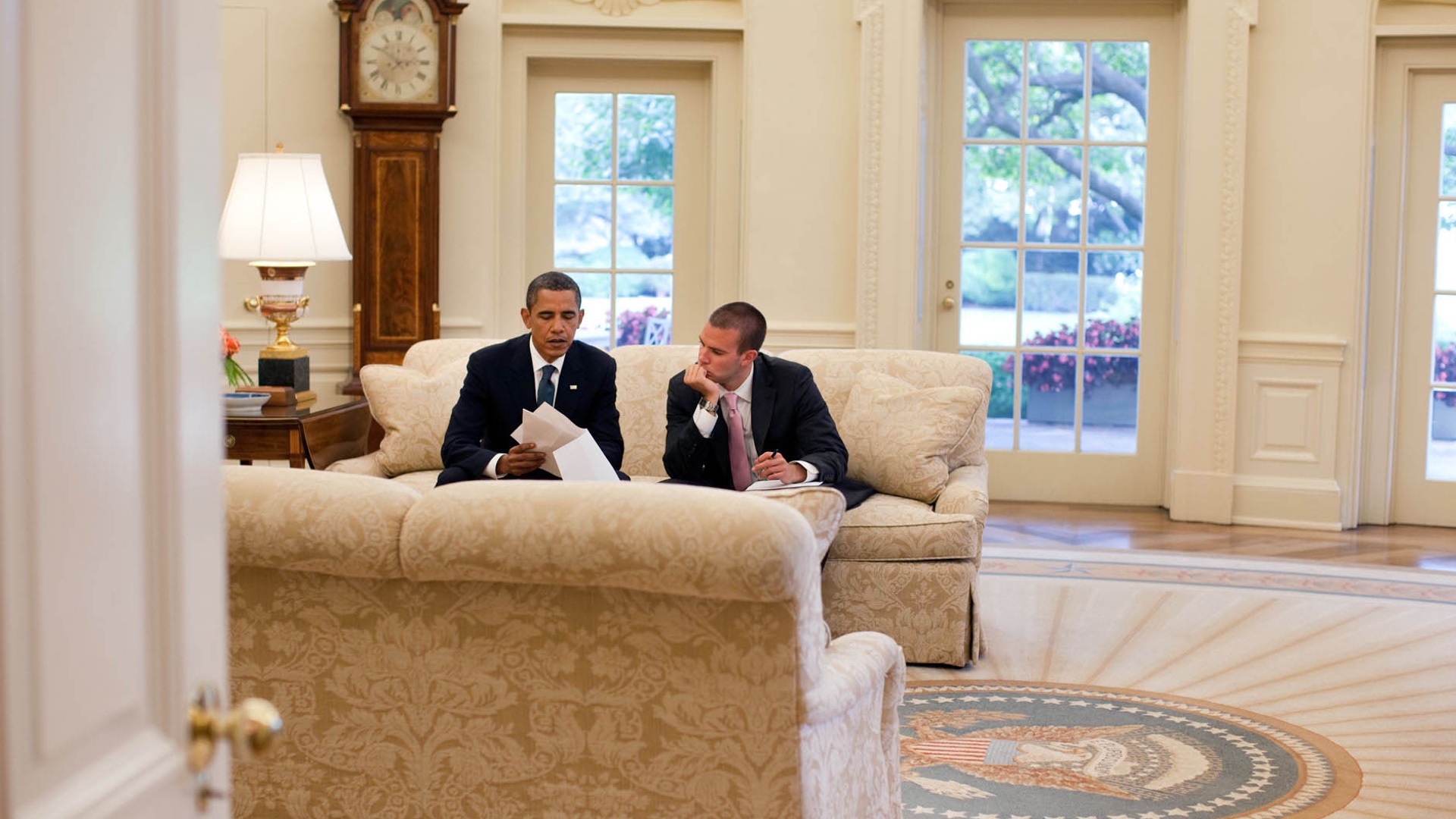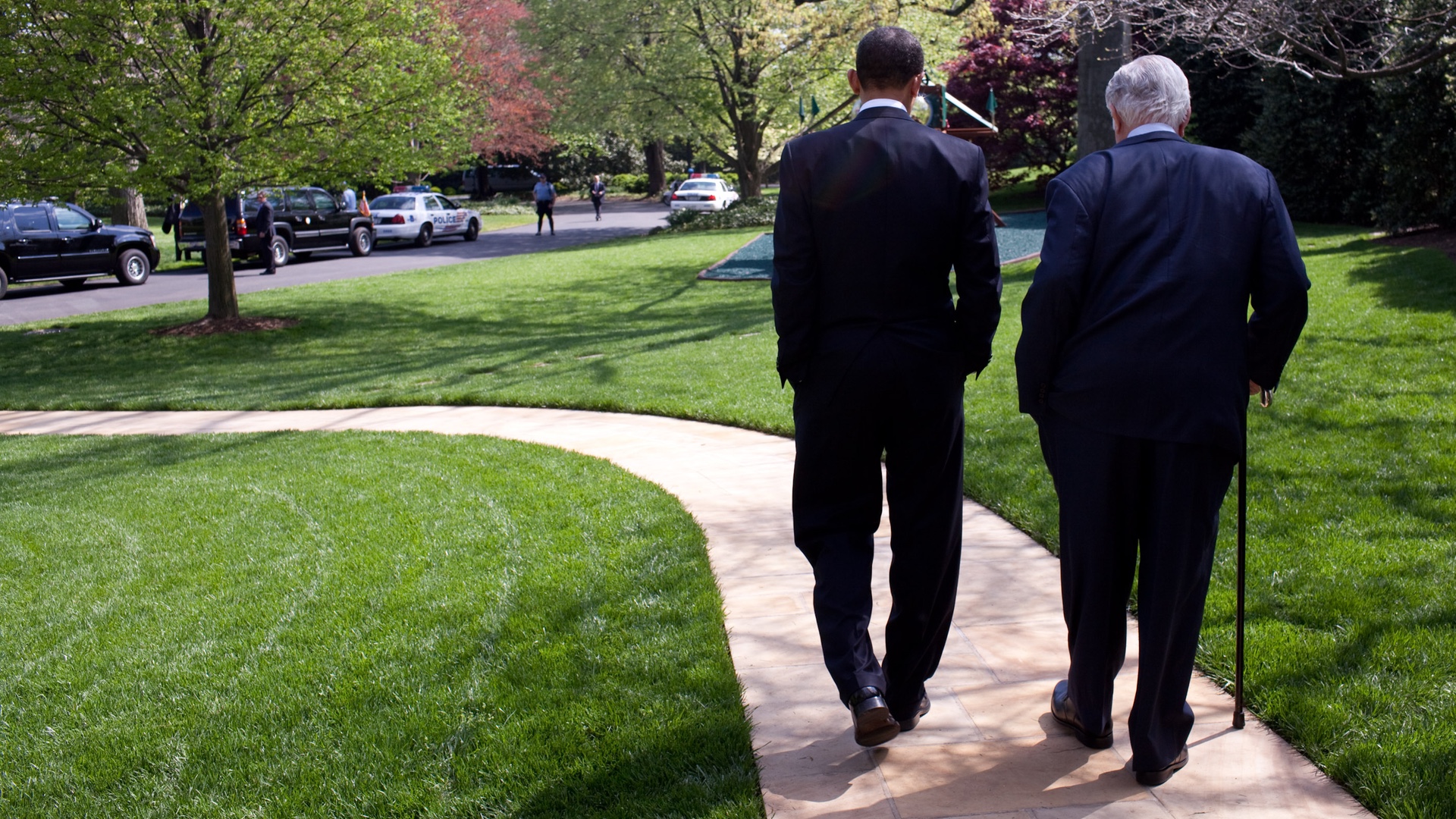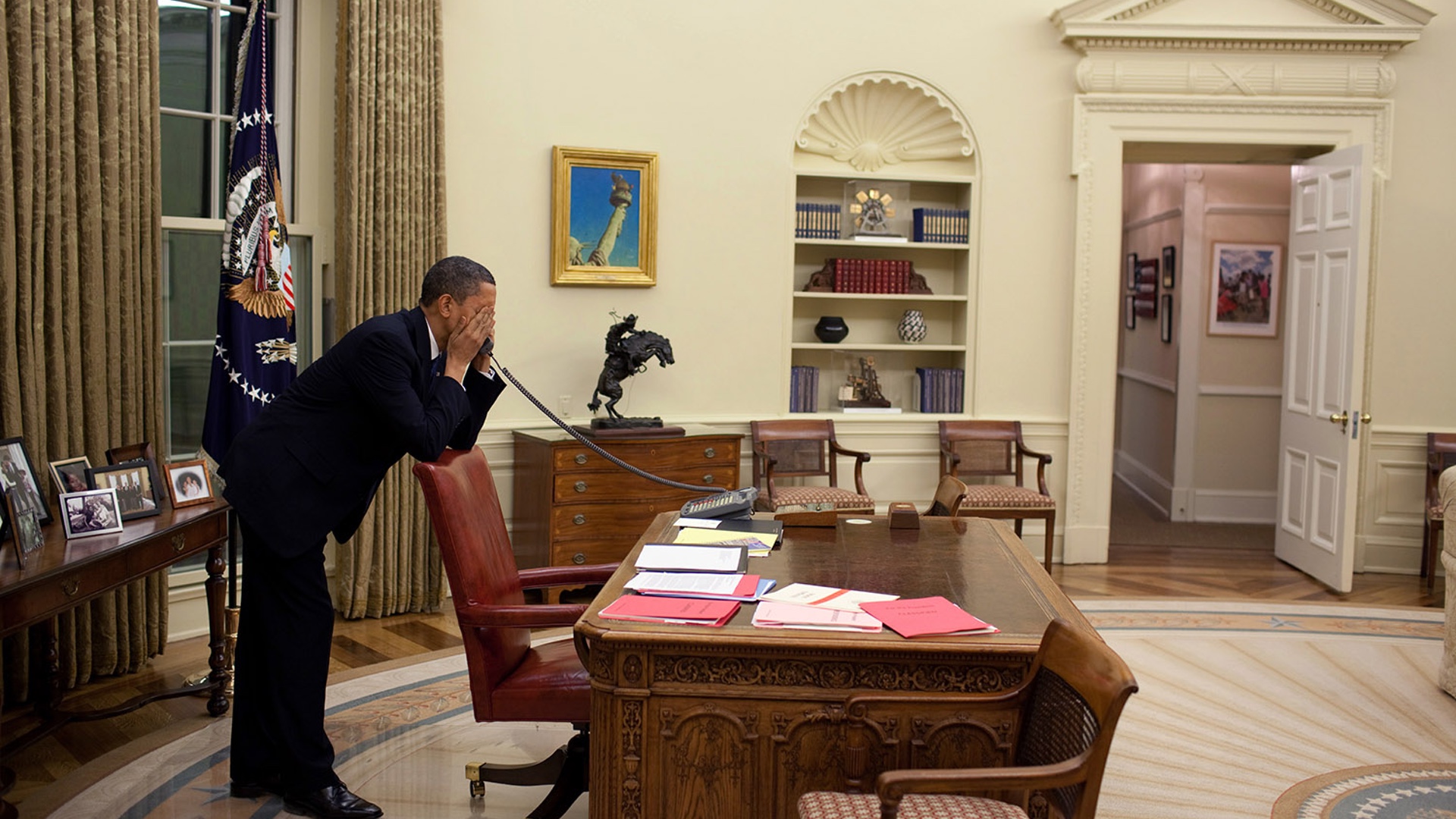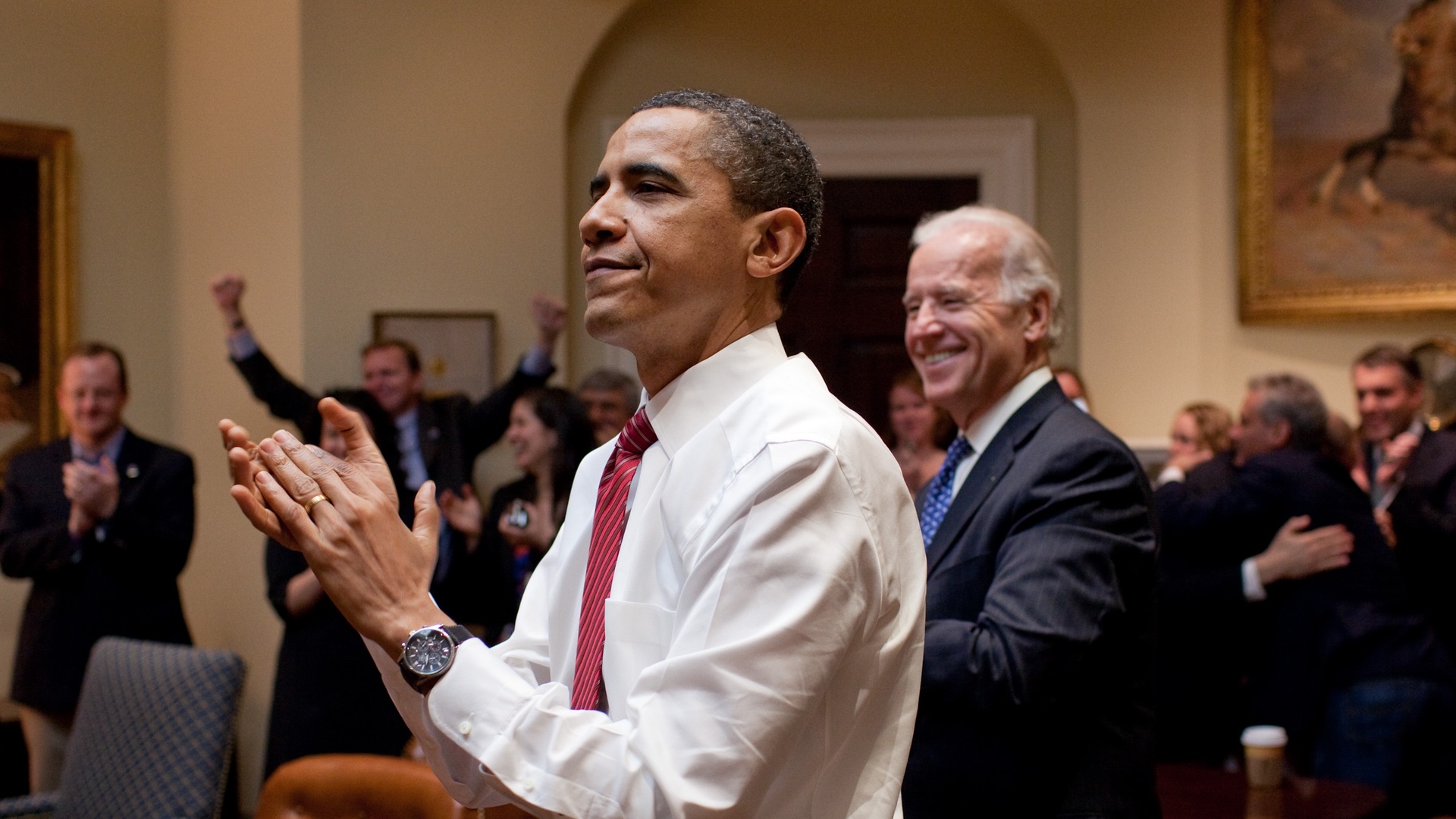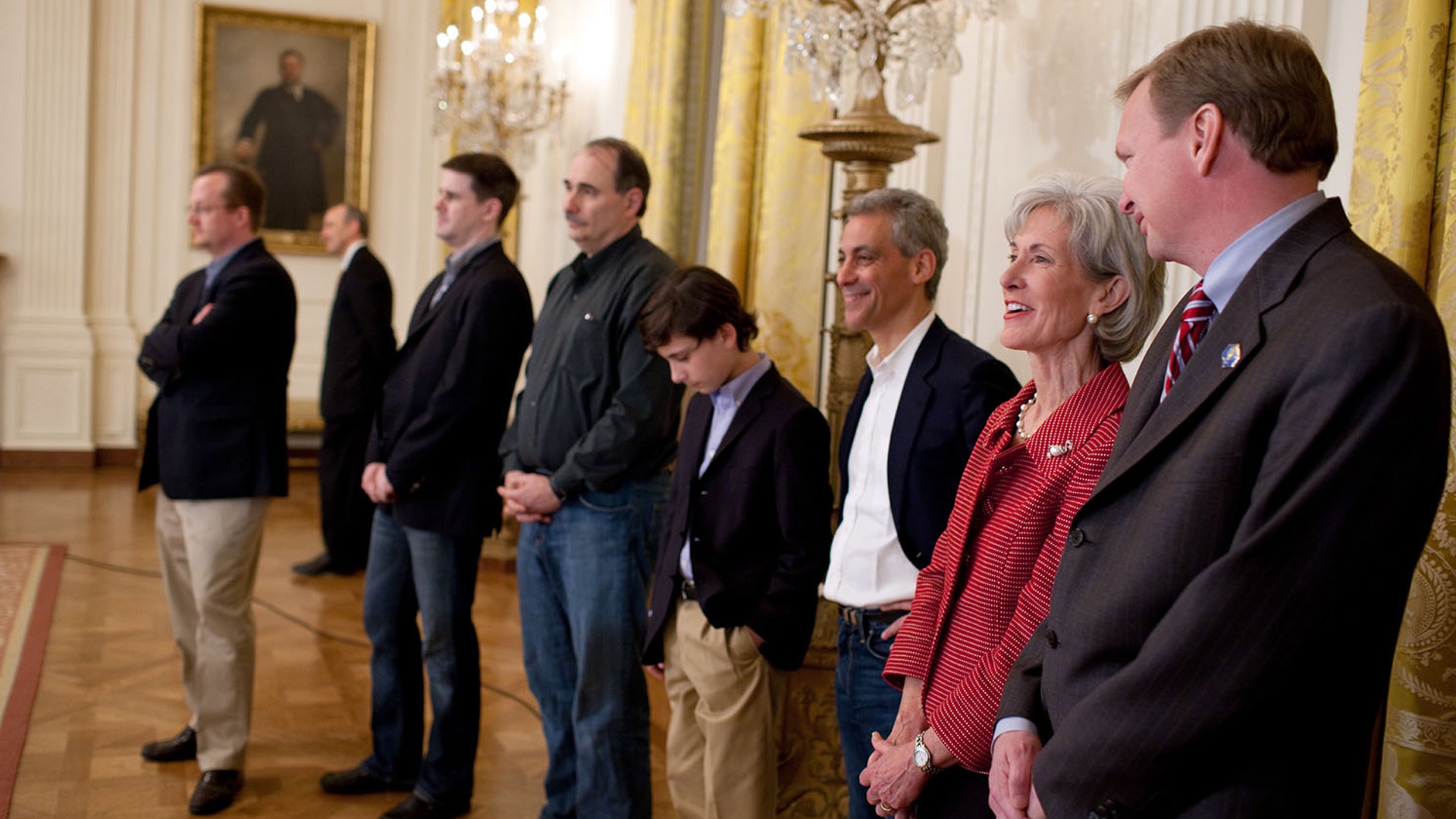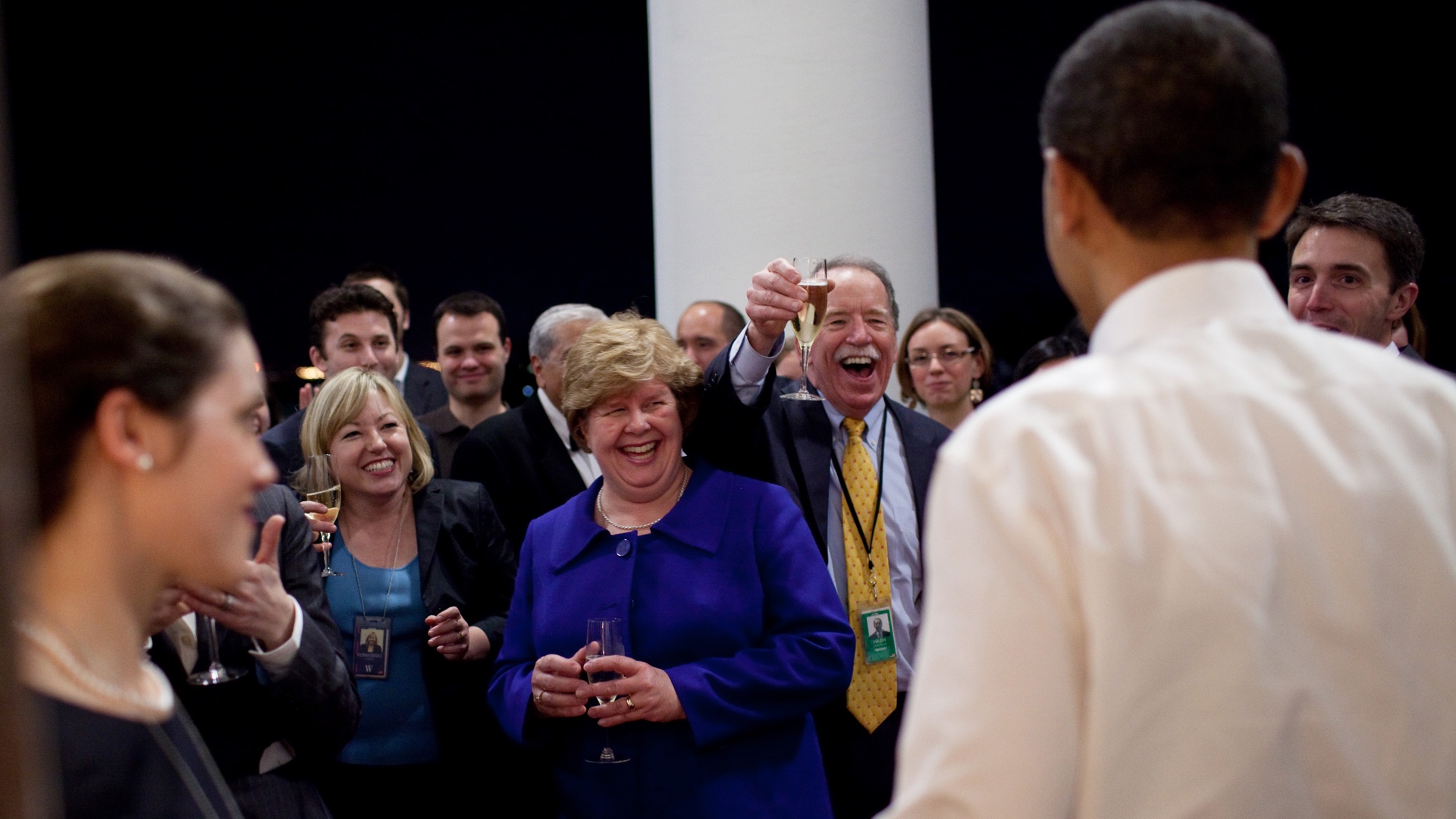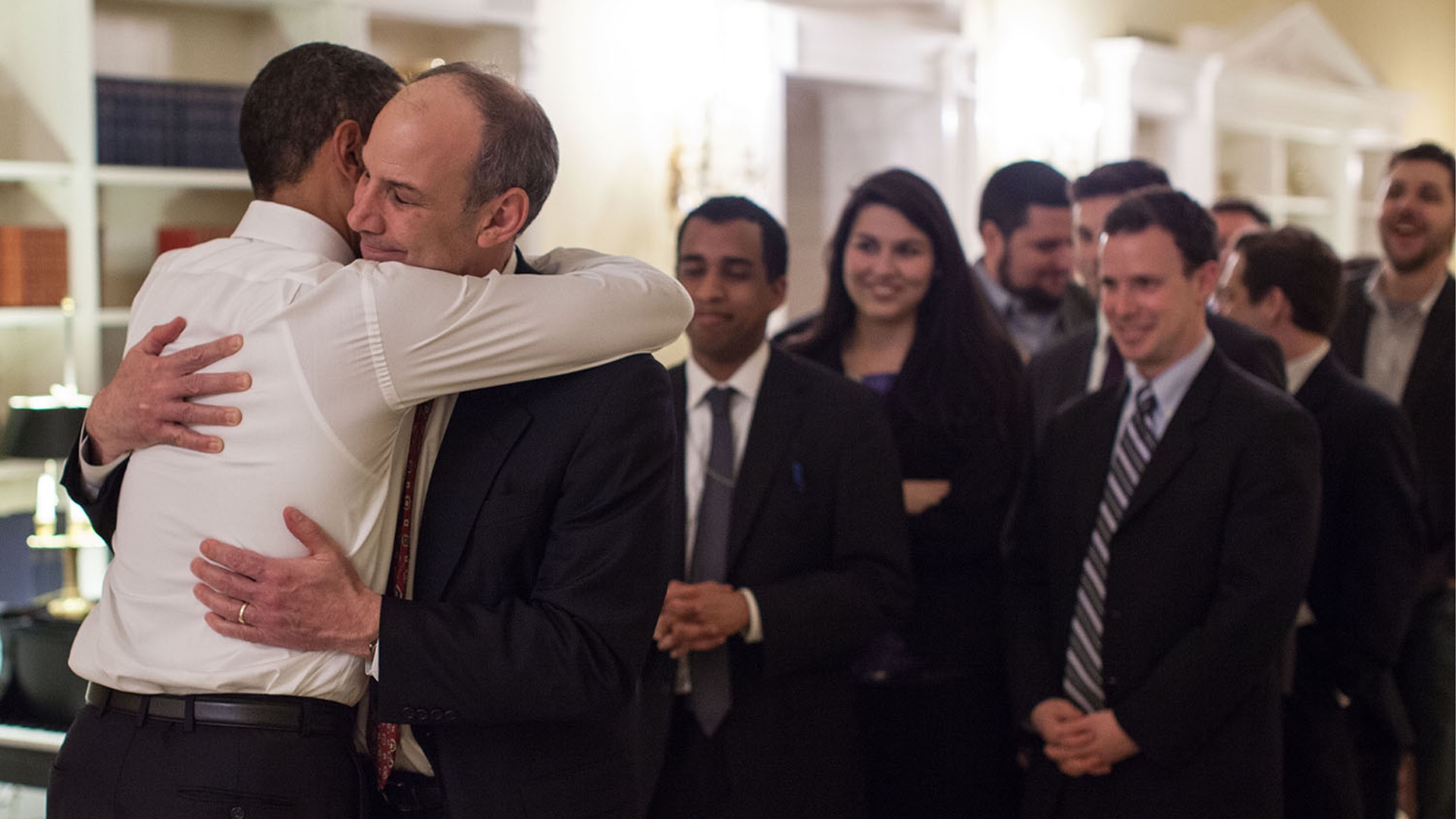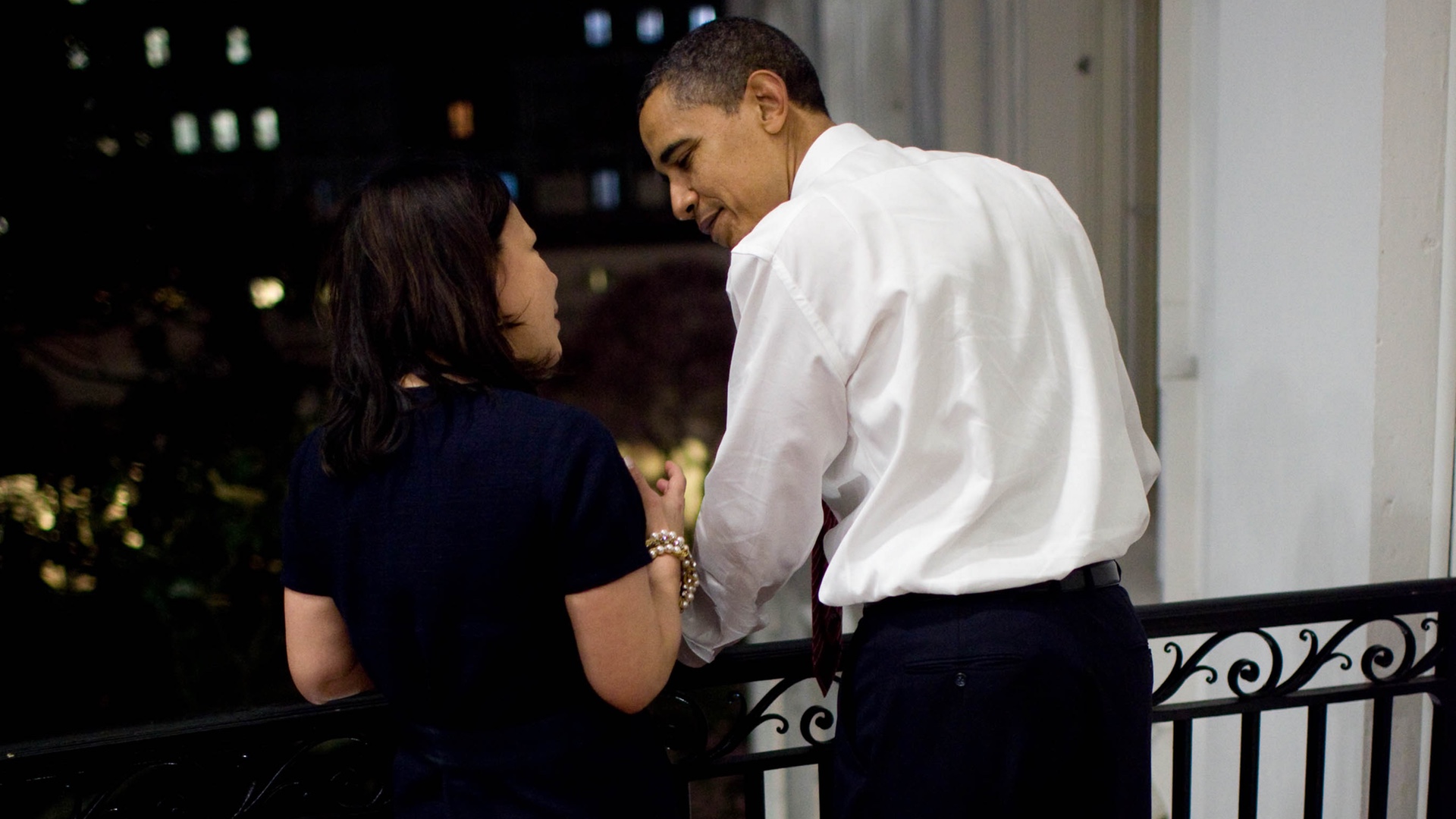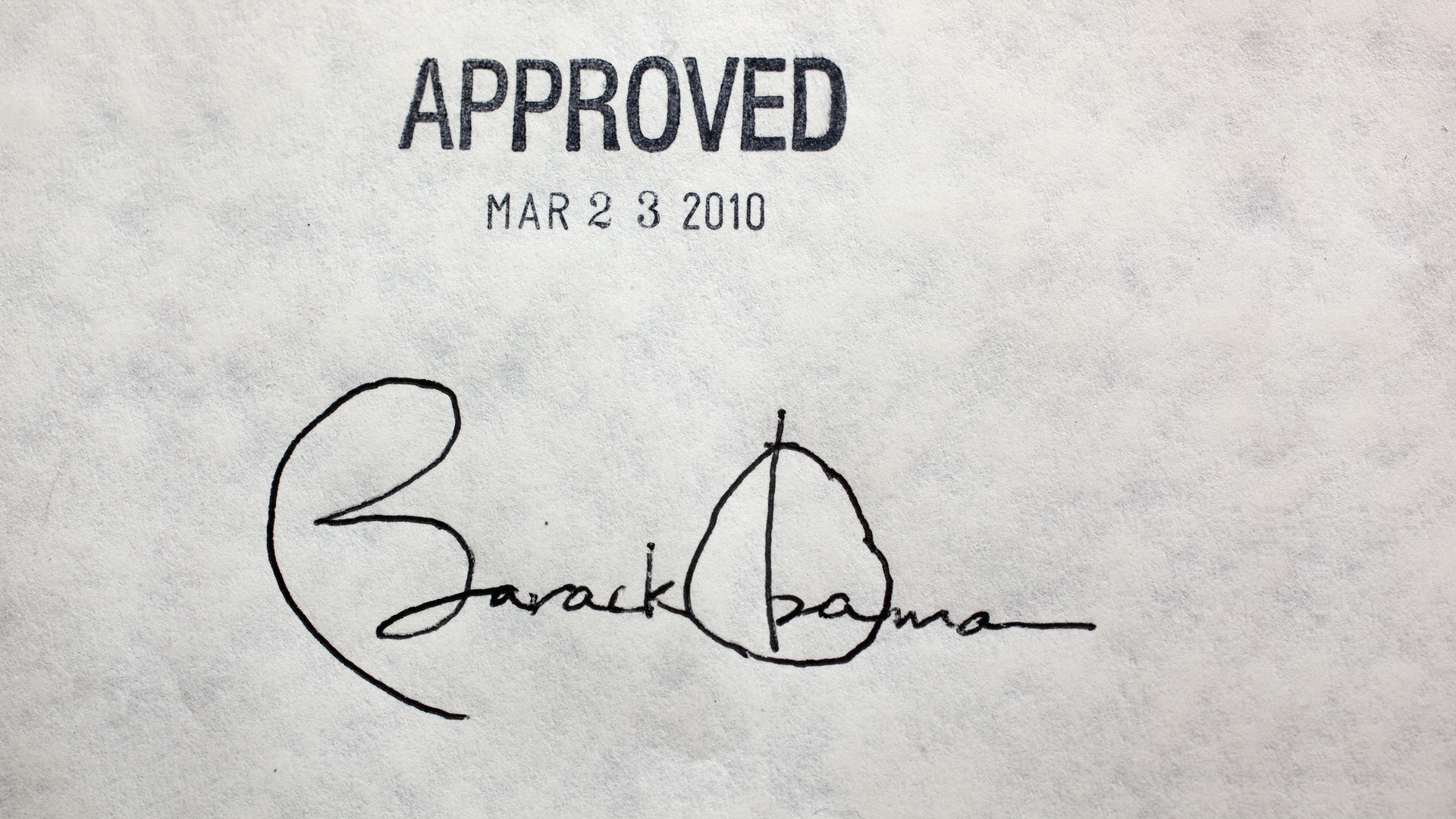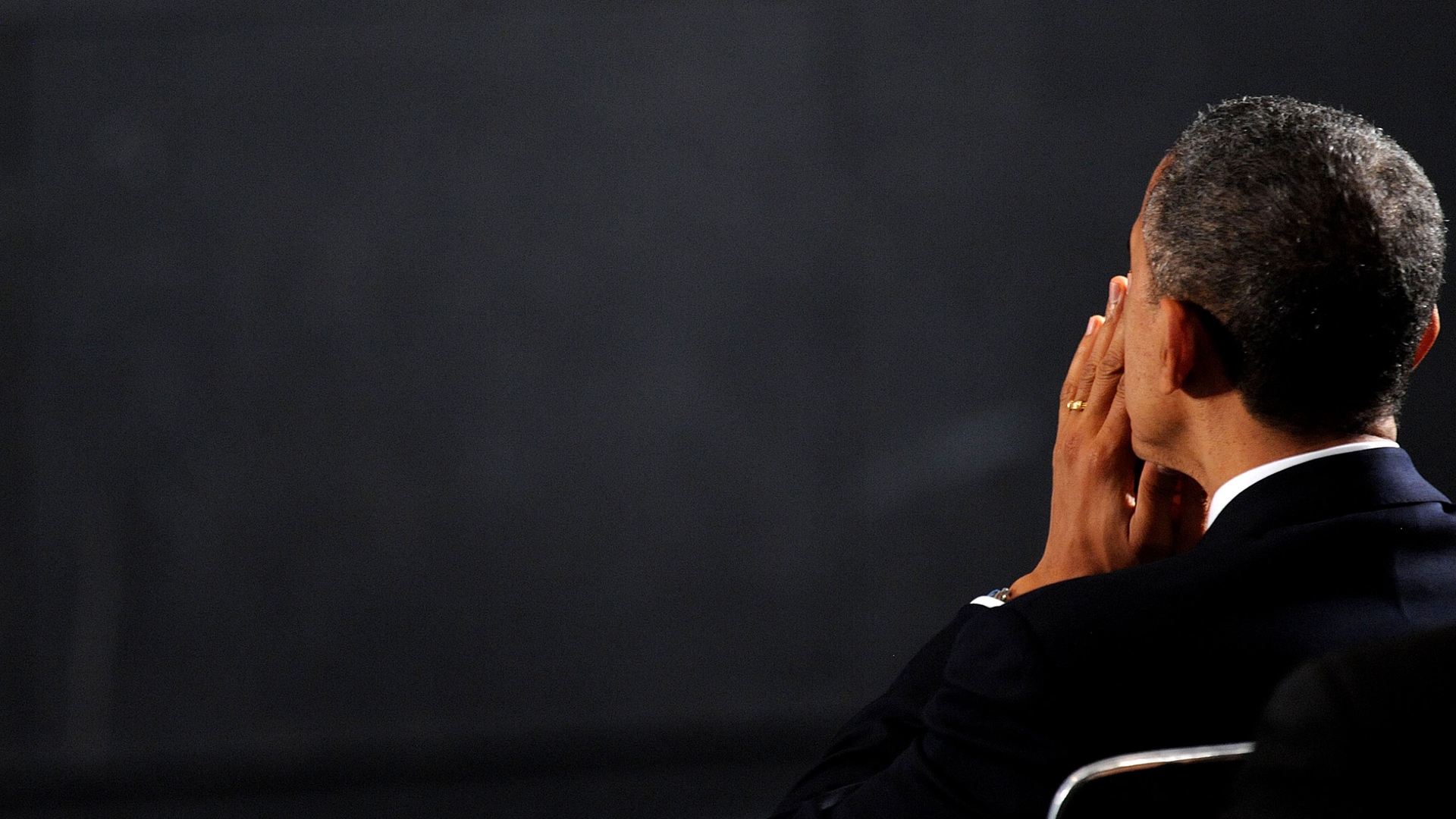Nearly 50 million Americans. That’s the number of people who were living without health insurance in 2009—more than 16 percent of the population. And as the crisis grew, it was the nation’s youngest, poorest and most vulnerable citizens who bore the brunt of the problem. Seven presidents, starting with Teddy Roosevelt and ending, most famously, with Bill Clinton, had tried to remedy the situation and failed. But If Barack Obama was going to do anything during his administration, he was going to pass health care reform—despite protests from the public and advice from his political advisors to scale back his plans. “This is what we’re here for,” he often said.
My mother died of cancer when she was in her early 50’s. She was younger than I am now. It happened very fast. She was diagnosed in February and a few months later had passed away despite very aggressive treatment. I remember the worry she had at that time, about not just coverage but also deductibles…sorting through paperwork trying to figure out whether this was going to burden the family. That probably was part of my motivation.
The president always talked about his mother [being] more concerned about how she was going to pay her bills than about getting through her treatment and loving life. The fact that he was able to put his hand on that and change that for so many people—I think it’s very powerful.
The president was always the driving force behind health reform…I remember going into his office in the summer of 2009 with some poll numbers that suggested we were taking on water on the health care law. And he said, “I'm sure you're right but I just came from Green Bay Wisconsin and I met a 36-year-old woman [with] two children and…stage four breast cancer. She and her husband had insurance but…she’s bumping up against her lifetime limit and she’s terrified that she’s going to die and leave her family bankrupt…That’s not the country we believe in, so let’s keep fighting.”
Just as strong…was the experience of campaigning over the course of two years and all the town halls and the round tables and hearing stories of people who even if they beat a life threatening illness had to give up
their home because of the costs, or were uncertain about what their future might hold. The sense of desperation and fear that was compounded because of the lack of health insurance.
There was always the big three—climate change, healthcare and Dodd-Frank financial reform. And the way he talked about it is, I have three children—and my first child is healthcare.
In February 2009, in a speech to a joint session of Congress, President Obama sought to reassure Americans about the economy—and to send a message that despite the fragile situation, his plans to reform health care would not be put on hold. In the address, he asserted that in the brief time he’d been in office—less than 30 days—more had been done to advance the cause of healthcare reform than in the preceding decade. His intention was clear: to capitalize on his victory and gain momentum while he still had the good will of the country.
Affordable health care…was one of the reasons he wanted to be president. And there’s such a short window in the beginning of any presidency where you can
actually get something done. He knew that if he did not move forward with health care early on, it wasn't going to happen.
In 2009, the president was faced with: Do I just deal with the economy or do I also try and do things on healthcare and on energy? And the safe play would
be just to deal with the economy.
The country was sitting on an economic cliff and everyone knew it. We were trying to pass the Recovery Act, and many people said, Well, just focus on the economy. Our response was, “Healthcare is a focus on the economy.”
For 60 or 70 years, the Democratic Party had tried…but had not been able to achieve it. As a result, you had a lot of people with different ideas about the best way to get there—whether or not to have a mandate or to have a public option or certain policy features that many people associated with universal health care. So the earliest days were really spent thinking about what this system should actually look like.
There were those of us who were concerned about the politics of it. And [the president’s] attitude was, “This is a major, major crisis and it’s only going to get worse in the future. What are we supposed to do, put our approval rating on the shelf and admire it for eight years? Or do we draw down on it to try and solve some of these big problems?” He was resolute.
I think a lot of people had the view that [because] of the economic situation he inherited, maybe this was not the right time. There were definitely voices saying, Maybe we should pass a smaller bill, or Maybe we should just do something for children and people with preexisting conditions and leave some of the more unpopular things alone. And one of the things I really respect about the president is he didn't listen to those people. He felt he was elected, in part, to push for this. And that kicking it down the road was not really the way to lead.
There were a lot of political advisors who were against it. For good reason.
[I was] giving him political advice that it would be really difficult. Seven presidents had tried. Seven presidents had failed.
[In June of 2009,] the president gave a 6,000-word health care speech that laid out every single policy, every argument against, every argument for. And…a 6,000-word speech is not going to break through.
There were many days or weeks where the president would say, “Look, this is going to be really hard to sell. It’s going to be very unpopular. And that’s okay.”
Despite the president’s single-minded commitment to overhauling healthcare, national opinion turned against him quickly—as did the Republicans. In September of 2009, in the face of rising public protest and a roiling new Conservative movement known as the Tea Party, Obama told his staff that he would again address Congress, this time specifically about his plans for healthcare reform, telling the nation, “Now is the time.” But his words didn’t move the needle. A Gallup poll taken that November found that just before Obama’s proposed bill was to be debated in Congress, 49 percent of Americans wanted their representatives to vote against it and only 44 percent said they’d advocate Congress supporting it—a 6 point drop from the month before.
The tenor became so negative so quickly. Hindsight is always 20/20, but the way we communicated about health care is perhaps one of the biggest communications failures we've had. We talked primarily about cost and cost savings when really there’s a moral argument that would perhaps have moved more of the American people.
We were so busy trying to push through a legislative agenda that we forgot some principles that many of us who worked on the Obama campaign had mastered about how to articulate a message and a vision to the country. The Affordable Care Act is…hundreds and hundreds of pages in length. People could be forgiven for not fully understanding everything in it. A lot of the protests were able to…take advantage of the fact that there was a lot of confusion.
The president decided to deliver a speech to a joint session of Congress, which is rare when it’s not a State of the Union; he needed to command a very large audience. Ben Rhodes’ [Obama’s foreign policy speech writer] was getting married the weekend [before the speech] in Los Angeles, and all the speech writers were invited. I asked the president, “Should I just not go to Ben’s wedding?” He said, “No, of course, you should go. Send me a draft before you leave
and when you come back, we’ll do edits.” So, I go to Ben’s wedding and Monday morning, Labor Day, I get a call, at 6 am. It’s Reggie Love. He said, “Hey, man, the president would like you to come upstairs to see him.” I was like, “Reggie, I'm in Los Angeles.” He tells me that the president has a lot of edits and rewrites, and says, “Can you be here soon?” So I get on a plane as fast as I can. There was no Wi-Fi, and I'm freaking out the whole flight. When I land, my Blackberry just fills up with a hundred emails: Come see the president. I run through the airport in a beer t-shirt, ripped jeans, flip-flops, [and] get to the front gates of the White House, out of breath [and] red-faced. I must’ve looked like a maniac. And I walk in there, still sweating, and the president comes down from the residence and he sees me and starts laughing and says, “I'm sorry to drag you in here [but I’ve] got a bunch of edits. Let’s talk this through.”
On August 25, 2009, long-time Massachusetts Senator and Democrat Ted Kennedy died after a battle with brain cancer. Soon after, the president got a posthumous letter from Kennedy that made it clear healthcare had been on his mind.
We received a letter from Ted Kennedy that said [on the envelope] Open after I pass away. And it was about health care and how this had been the great mission of his brother. And he wanted to see the president carry it through. One phrase he used in that letter was, “This is the test of the character of our country.” And the president zeroed in on that phrase and [made] the ending of the speech about that. And he delivered that speech on Tuesday after Labor Day. And in the middle of the speech, Joe Wilson stood up and screamed, “You lie!!”
We’ve been through all kinds of upheaval in our country’s history and there were moments when one member clubbed another on the floor of the Senate. But in that long history, something like that level of disrespect never happened, and I was shocked when it did.
So, it didn't go over well with Republicans. But I think that speech bucked up a lot of anxious Democrats who weren't sure if they would vote for the bill.
Senator Kennedy’s death left a vacancy in the Senate that would lead to a dramatic upset in January: the election of Republican Scott Brown. The outcome shifted the Democrats’ filibuster-proof 60-40 majority to 59-41, putting Obama’s health care legislation in danger of failing.
When we lost that seat…many people thought that was the end of the line because that was the 60th seat we needed to break a filibuster. The president said, “No, we’re going to get this done,” and really sort of led the strategy for reviving the bill and ultimately passing it.
After Ted Kennedy passed away, the sense that [healthcare reform] might be gone was real. But I wanted us to look through every possible maneuver to get this done. I remember Rahm Emanuel, my chief of staff, coming in and saying, “Mr. President, What do you want to do? Do you feel lucky? I said, ‘Listen, my name is Barack Hussein Obama. I’m here in the Oval Office. Of course I feel lucky.’”
Against the counsel of some of his closest political advisors, President Obama pushed forward with his legislation as the March vote in Congress approached, despite dropping poll numbers. At stake was not just healthcare reform, but his chance at a second term in the White House.
The story that makes me proudest of working for Barack Obama was when it looked like that bill couldn't pass, and Rahm Emanuel went to the president and said, “Look, we don’t have the votes and if you keep pushing this,
you're going to lose in 2012. So I think you need a scaled down version of this bill and just leave it at that.” And the president said, “I came here to do something. If I keep going and I lose, so be it.”
This is someone who, agree with him or [not], has political courage. [He believes] there are some things that are more important than keeping his job.
I will never forget the meeting when we were sitting in the Roosevelt Room, [the White House conference room]. All the senior staff sits around the table with the president, and other staff is around the perimeter
of the room, and…we’re trying to move a piece of legislation that multiple presidents haven’t been able to move across the goal line. And there’s a sense of logic to the idea of, “Maybe it’s time to pull back a little bit.” And I remember the president listening and he kind of laughed and shook his head. He said, “You know, if I listened to some of you, first we’d cover people’s big toe and then we’d cover their pinky, and then we might cover an elbow.” In other words, it can’t be done
piecemeal.
So much of that last weekend [before the final vote on the ACA] was…talking to those [Congressional] members by the president, by his staff…I can remember being on the Hill at midnight in the House of Representatives and there were protests—you had to walk past protestors to get into and out of the House. And even that final weekend, it seemed a little bit in doubt whether there was going to be enough to get this through.
Ninety-eight percent of the credit goes to the president. He was absolutely committed to getting this done and…he took a real hit for it because…people thought that was all he was working on, that he wasn’t working on saving their houses and jobs.
One of the things that emerged in the final days of the health care legislation was a controversy amongst certain conservative House Democrats who were pro-life and had very serious concerns with some of the provisions that spoke to funding for abortions. And the president spent a lot of time on the phone just really trying to understand exactly what they were saying.
And that, to me, is one of the memories I have about how the president really worked with Congress. The American public doesn't see that. It’s not the same as inviting someone to play golf and then having it reported that you spent six holes talking about a deal. That’s one way of interacting with Congress. Another is to call them up, to genuinely try to understand what they're concerned about and to try to think about how best to deal with that. And that’s exactly what we did in the final days leading up to the passage of health care.
People were saying [about the fate of the ACA], Well, you’re done, that’s it. We all got together in a saloon in Georgetown, had a couple of drinks and determined, We’re not buying that. And so, we handed out stickers that said, “fight cynicism” to everybody in the White House. And anytime [anyone] gets a little cynical in our morning meeting, the president will point to the sticker or I’ll point to the sticker or we’ll hand them a sticker on the way out, and say, “Fight that cynicism, man.”
On an unusually balmy day in late March, after last-minute jockeying in back rooms and the White House gym to persuade more conservative Democrats to vote "yes" despite certain provisions in the bill regarding reproductive rights, the vote went to the House. The victory was slim—219 to 212—with not a Republican on board. But it was a victory nonetheless.
The night the vote was scheduled…I’d gone home about 7 o'clock and put on my pajamas and got out a bowl of popcorn and was prepared to watch the vote when I received a phone call from the president’s assistant, who said the president would like everybody who participated in the passage of this to come back and watch it from the White House. So I schlepped back to the White House.
A group of us gathered in the Roosevelt Room to watch CSPAN. I think that’s probably the only time in my life I've ever watched a vote on CSPAN. But to literally watch the little vote totals on the bottom of the screen go from 183 to 215 and wait for that to happen, and 216, I think, was the magic number. And everyone just started hugging each other and clapping and people were tearing up.
Most of [the Democrats who voted for the ACA] were younger, coming from swing districts, and they said, We think this is the right thing to do, Mr. President. We’re with you. At a time when we get so cynical about politics, that’s a reminder that there are a lot of people who get into this for the right reasons, and…are willing to cast tough votes on behalf of principle. In some ways, the Affordable Care Act is as much as their accomplishment as it is mine.
Since Teddy Roosevelt, people have been trying to pass healthcare. [That’s] 100 years, and quite frankly…part of it was that they didn’t have the skill and passion of [this] president. Neither the president or I thought it was a perfect act…but [the ACA] established once and for all that in the United States of America, healthcare is a right, not a privilege.
After the vote, the president invited everybody up to the Truman Balcony to celebrate.
I remember him saying that night, “You know, this may be the most important thing all of us will ever do in our life.” I was 30 and I remember thinking to myself, Well, it could really just be all downhill from here.
I'm a father of a [daughter] with a chronic medical condition…I was one of those families who almost went bankrupt trying to deal with her problems. So on the night this passed, yeah, I wept, because I knew that there were other families who wouldn't have to deal with the things my family had to deal with because of what he’d done. When I thanked him for that, he said, “That’s why we do the work.”
There were about 100 people on the Truman Balcony and by about 1:30 in the morning people started to go home. I had a quiet moment with the president and asked how the night compared with election night. And I'll never forget, he said, “Valerie, there’s just no comparison. Election night was all about getting to this night.” And I thought that said a lot about him. He wasn't motivated by the politics; he was motivated by the results.
“We want to repeal Obamacare.” This has been the guiding principle for the Republicans for quite some time. But the truth of the matter is, we have provided 20 million people with health insurance who didn’t have it. We’ve been able to drive down the pace at which healthcare costs were going up to the lowest levels in 50 years. We’ve significantly improved the quality of insurance that everybody has by, for example, making sure that if you’ve got a preexisting condition, you still can get health insurance. Or making sure that kids can stay on their parents’ health insurance till they’re 26. And a lot of those things are popular even though people don’t know that the law did it. And if, in fact, the Republicans now try to repeal it, the thing they have to do is to come up with something that does not eliminate all the popular things that we did, that doesn’t just toss 20 million people off the health insurance rolls.
We’ve set a bar, we’ve set a standard. Had we not done healthcare, then they’d feel no imperative at the moment to try to provide health insurance to those people. Now, in order to reverse it, they’ve got to come up with something that still helps those folks. Either way, as a consequence of the efforts we made, a lot of people are better off.
Some of the proposals they’ve made to replace Obamacare really are just modifications on the basic concepts that we have already put in place. Had they been less partisan, been willing to just negotiate with me on the front end when we were designing the program, we could have incorporated those same ideas, in fact, I offered at the time…I’m not worried about pride of authorship. If they want to call it Ryan-care, Trump-care or Reagan-care doesn’t matter to me. If people are getting health insurance who wouldn’t have otherwise had it, had I not been willing to use a lot of political capital and push this thing forward, that’s part of the legacy that I’ll always be proud of.
Share "100 Years To Healthcare"
